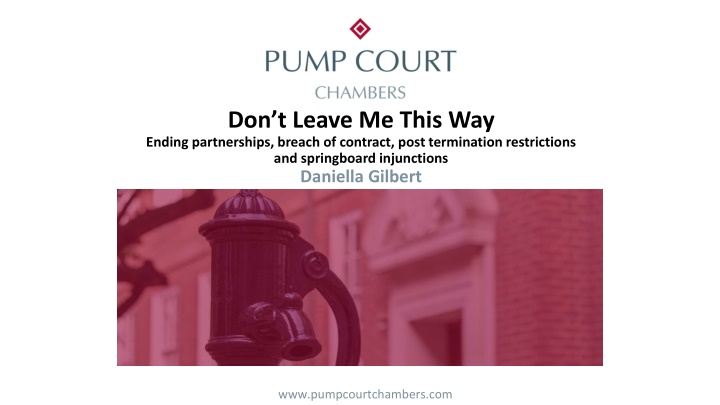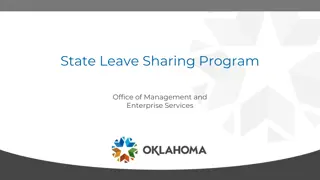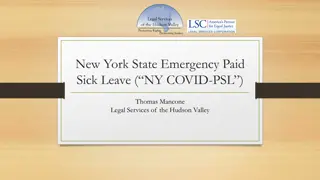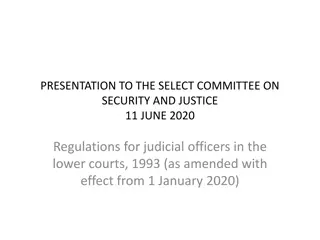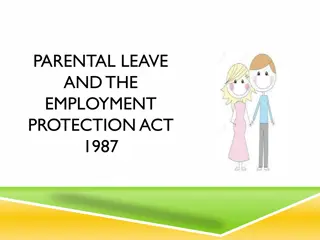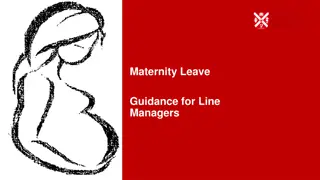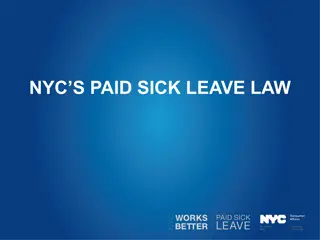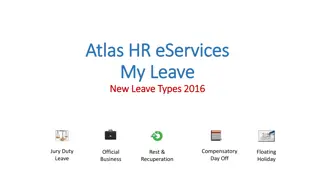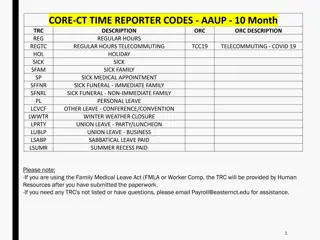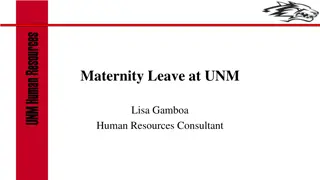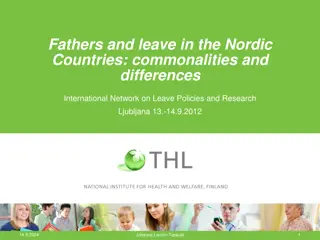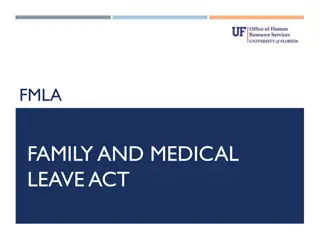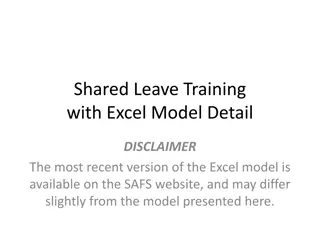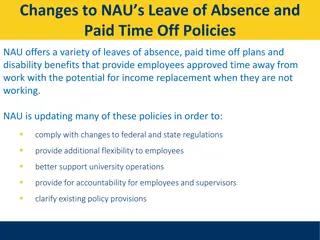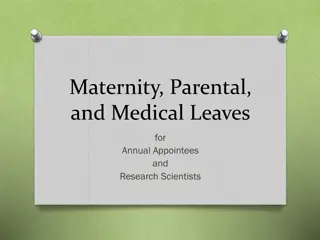Don’t Leave Me This Way
Post Termination Restrictions (PTRs) are contractual terms that extend beyond the termination of a relationship to safeguard an organization's goodwill, confidential information, and legitimate business interests. This article delves into the purpose, distinctions from confidentiality obligations, suitable scenarios for PTRs, and their role in franchise agreements and business sales.
Download Presentation

Please find below an Image/Link to download the presentation.
The content on the website is provided AS IS for your information and personal use only. It may not be sold, licensed, or shared on other websites without obtaining consent from the author.If you encounter any issues during the download, it is possible that the publisher has removed the file from their server.
You are allowed to download the files provided on this website for personal or commercial use, subject to the condition that they are used lawfully. All files are the property of their respective owners.
The content on the website is provided AS IS for your information and personal use only. It may not be sold, licensed, or shared on other websites without obtaining consent from the author.
E N D
Presentation Transcript
Dont Leave Me This Way Ending partnerships, breach of contract, post termination restrictions and springboard injunctions Daniella Gilbert www.pumpcourtchambers.com
Post Termination Restrictions (PTRs) Contractual terms that subsist for a defined period beyond termination of the contractual relationship and restrict the ability of a party to: Solicit clients, customers, suppliers, other employees etc of the other party Operate in competition with the other party To protect the employer s goodwill, confidential information, connections, stability of the workforce, other legitimate business interests
Purpose of PTRs To: Protect the employer s goodwill, confidential information, connections, stability of the workforce, other legitimate business interests Not to: Prevent competition
PTRs Vs confidentiality PTRs are distinct and separate from confidentiality obligations Confidentiality obligations may be express and will always be, to a more limited degree, implied Implied duty to keep trade secrets confidential will subsist after termination of employment
When are PTRs used? PTRs may be permissible in a variety of scenarios: Employment and similar / related: Employees Partners and LLP members Variety of Commercial and corporate contracts Franchise agreements On sale of a company or business Joint ventures
Franchise agreements Franchise agreements Restricts activities of outgoing franchisee Usually limited to businesses in competition and geographical area Difficult for franchisor to find a new franchisee where the outgoing franchisee has accumulated know-how and contacts during lifetime of the agreement Protects the goodwill of the franchise
Business sales Asset or share sales Protects the goodwill in the business Buyer has a legitimate interest in preventing the seller(s) from establishing a competing business. The existence of the restraint is reflected in the price paid for the target business and, without this restraint, "the whole transaction would be valueless" (Herbert Morris Ltd v Saxelby [1916] 1 AC 688, Lord Shaw).
Joint Ventures Dawnay, Day & Co v de Braconier d'Alphen [1998] ICR 1068 To protect its capital investment and also the confidential information and know-how that it contributes to the joint venture. To prevent its joint venture partner(s) from misusing this information and know-how for their own purposes.
Partnerships Typically 12 months + May include restriction on: Soliciting or canvassing the firm's clients Conducting business with the firm's clients Working for a competitor within a specified geographical area Soliciting or employing other partners and members of staff Joining a firm to which another partner or senior employee from the original firm has recently transferred
Partnership Vs Employment Treated differently to PTRs in employment Greater equality of bargaining power Status of partner is relevant Equity Vs salaried partner will be viewed differently Principles of repudiatory breach don t apply
Springboard Injunctions Enforcement or alternative?
Springboard Injunctions Typically deployed to protect against impact of misuse of confidential information Sought where confidential information has been misused to gain an unfair competitive advantage Designed to cancel out the unlawful advantage or head start Prohibits further dealing with any customer obtained using confidential information Restitutionary in character, not intended to punish for wrongdoing The wrongdoing may have been in the past, but the question of springboard relief is whether the effect of past wrongdoing continues to confer a present and future benefit on the wrongdoer which the court should prevent. Willis Ltd and another v Jardine Lloyd Thompson Group plc and others [2015] EWCA Civ 450
Springboard Injunctions Not limited to confidential information cases In an appropriate case, the court could grant a springboard injunction to neutralise an unfair advantage obtained by a person in breach of a legal obligation, and such injunctions were not limited to cases of misuse of confidential information Midas IT Services v Opus Portfolio Ltd (unreported), 21 December 1999 (Ch D)
Relationship with PTRs Operate in a similar way Springboard relief can be obtained where there are PTRs, and where there are not .e.g. Where there were no PTRs at all Where they were held to be unenforceable Where they were of inadequate scope QBE Management Services (UK) Ltd v Dymoke and others [2012] EWHC 80 Dorma UK Ltd v Bateman and others [2015] EWHC 4142 (QB) Not without risk
Springboard Injunctions Requirements: American Cyanamid principles Must also show: Unlawful activity on the part of the respondent e.g. misuse of confidential information, breach of contract Respondent has gained an unfair competitive advantage Nature and period of the competitive advantage are more than "ephemeral" or "short term Advantage still exists at the date that the springboard injunction is sought and will continue unless the relief sought is granted Sun Valley Foods Ltd v Vincent and others [2000] FSR 825
